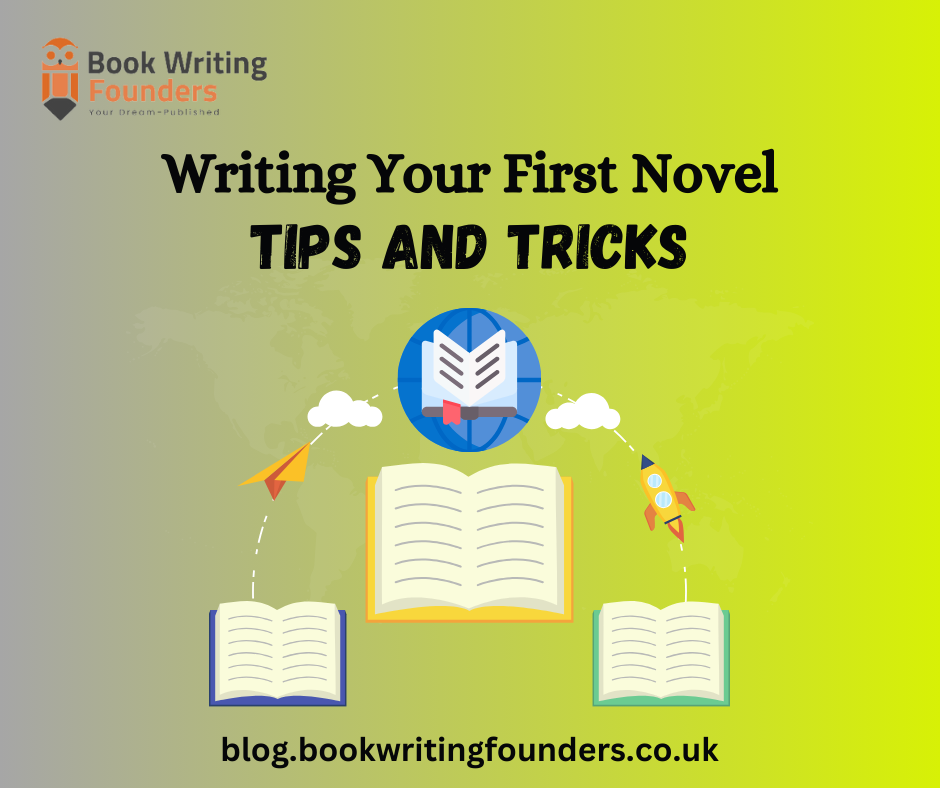
Writing
Writing your first novel is a remarkable and deeply personal endeavor that promises to unlock a world of creativity and storytelling.
It’s a journey filled with excitement, challenges, and the opportunity to share your vision with the world. The art of novel writing is as diverse as the stories, and there is no one-size-fits-all approach.
Within this writing guide, you will find a wealth of insights and practical advice for aspiring writers.
It’s important to remember that writing a novel is a process, and there are no strict rules, but guidelines and principles can help you along the way.
Tips and Tricks for Novel Writing Process:
A successful journey is often paved with a valuable writing guide and a proper plan. Therefore, crafting a compelling plot with well-structured story arcs, creating memorable characters with depth, and carefully establishing the setting are essential foundations.
However, these tips and tricks serve as a compass to help navigate the exciting and sometimes challenging journey of bringing your novel to life.
1- Creating a Compelling Plot:
Creating a compelling plot is the beating heart of any novel, the vital force that propels readers on an enthralling journey. Also, it begins with a unique and captivating concept that sparks curiosity and emotion.
- Start with a Strong Concept: Your plot should be built around an engaging, unique idea that captures readers’ attention.
- Develop a Clear Structure: Outline the major plot points, including an inciting incident, rising action, climax, and resolution, to give your story a solid framework.
- Create Tension: Introduce conflicts and obstacles to keep readers invested in the outcome.
- Subplots: Weave in subplots to add depth and complexity to your story, making it more engaging and realistic.
2- Preparation Phase:
The preparation phase is the foundation for your novel. Also, finding your ideal writing space, setting realistic goals, gathering the right tools, and immersing yourself in a writing guide adventure all contribute to a strong start.
- Plan Before You Write: An outline is your roadmap. It helps you stay organized and ensures your plot flows smoothly.
- Flexibility: Be open to adjusting your outline as your story evolves. Sometimes, the best ideas come while you’re writing.
- Chapter Summaries: Outline your chapters briefly to maintain focus and direction during writing.
- Choosing Writing Software: Select the right writing software or tools that work best for you. Popular choices include Microsoft Word, Scrivener, or Google Docs. Therefore, these tools help you organize your work and streamline the writing process.
- Thorough Research: If your novel involves historical events, specific locations, or technical details, thorough research is essential for accuracy and authenticity.
3- Genre and Style:
Genre and style are a novel’s artistic DNA, defining its identity and how it communicates with its readers. The choice of genre reflects the author’s interests and storytelling passions, an exploration of themes, tropes, and conventions that resonate.
- Genre Conventions: Each genre has its own conventions, from themes and tropes to character types and plot structures. Also, please familiarize yourself with these conventions to guide your storytelling.
- Character Voice: Each character in your novel should have a distinct voice, reflecting their background, personality, and experiences. Consistency in character voices is crucial for reader engagement.
- Market Research: Study the market to see which genres are popular and in demand. However, don’t let market trends dictate your choice entirely; being genuinely passionate about your chosen genre is crucial.
4- Self-Discipline and Motivation:
Self-discipline and motivation can drive your novel from conception to completion. By maintaining consistency in your writing routines, navigating writer’s block with resilience, and staying inspired through various sources.
You can also read articles by Book Writing Founders UK on self-discipline and create a robust framework for your creative process.
Below are the critical elements of self-discipline and motivation in the novel writing:
- Setting Realistic Goals: Break your writing goals into achievable, bite-sized tasks. However, setting specific word count targets or chapter milestones creates a sense of accomplishment and maintains focus.
- Freewriting: When the words just won’t come, try freewriting. It is a form of stream-of-consciousness writing where you jot down anything that comes to mind without self-editing. It can help break through mental blocks.
- Real-Life Experiences: Drawing from personal experiences and observations can infuse authenticity into your writing. So, your life can be a rich source of inspiration for characters, settings, and themes.
5- Getting Feedback:
Getting feedback is a fundamental part of the process, a crucial step in elevating your manuscript from a draft to a polished work of art. Beta readers and critique partners provide valuable insights, helping you identify blind spots and areas for improvement.
- Selecting Beta Readers: Choose beta readers who are familiar with your genre and can provide honest, constructive feedback. So, their insights are invaluable for identifying strengths and weaknesses in your manuscript.
- Learning from Feedback: Use feedback as a learning tool. Analyze the suggestions provided, and consider how they align with your vision for the story. Also, accepting or rejecting feedback based on what serves your narrative best is okay.
- Multiple Passes: Revise your manuscript in multiple passes. After addressing significant feedback, go through it again to refine and polish the writing. Therefore, each revision brings your work closer to its full potential.
6- Common Pitfalls to Avoid:
You can improve the quality of your book with the help of writing guide and increase your chances of success by avoiding these common mistakes. To write a polished, powerful work of fiction, you must fight the urge to put things off, avoid over-editing too soon, and be patient during the publishing process.
- To combat procrastination, establish a writing routine and stick to it. Set achievable goals and break down your work into manageable tasks. You’ll maintain momentum and stay on track by consistently dedicating time to your writing.
- Accept that your first draft will be flawed. Write with the understanding that revisions will come later. Therefore, avoid self-editing during the initial creative process, as it can interrupt the flow of ideas. Allow yourself to make mistakes and refine your work during the editing phase.
- Take the time to revise and polish your manuscript. Seek feedback from beta readers and professional editors to ensure your work is of the highest quality. Also, research the publishing process through traditional or self-publishing and develop a well-thought-out marketing plan to reach your target audience effectively.
Conclusion:
As you enter the world of novel writing, your words may flow, and your imagination soar. Therefore, the magic of writing lies in creating stories and discovering your creative potential. This writing guide teaches you how to turn your ideas into an exciting story, creating characters and plots. Your story is waiting – go ahead and write your masterpiece.





